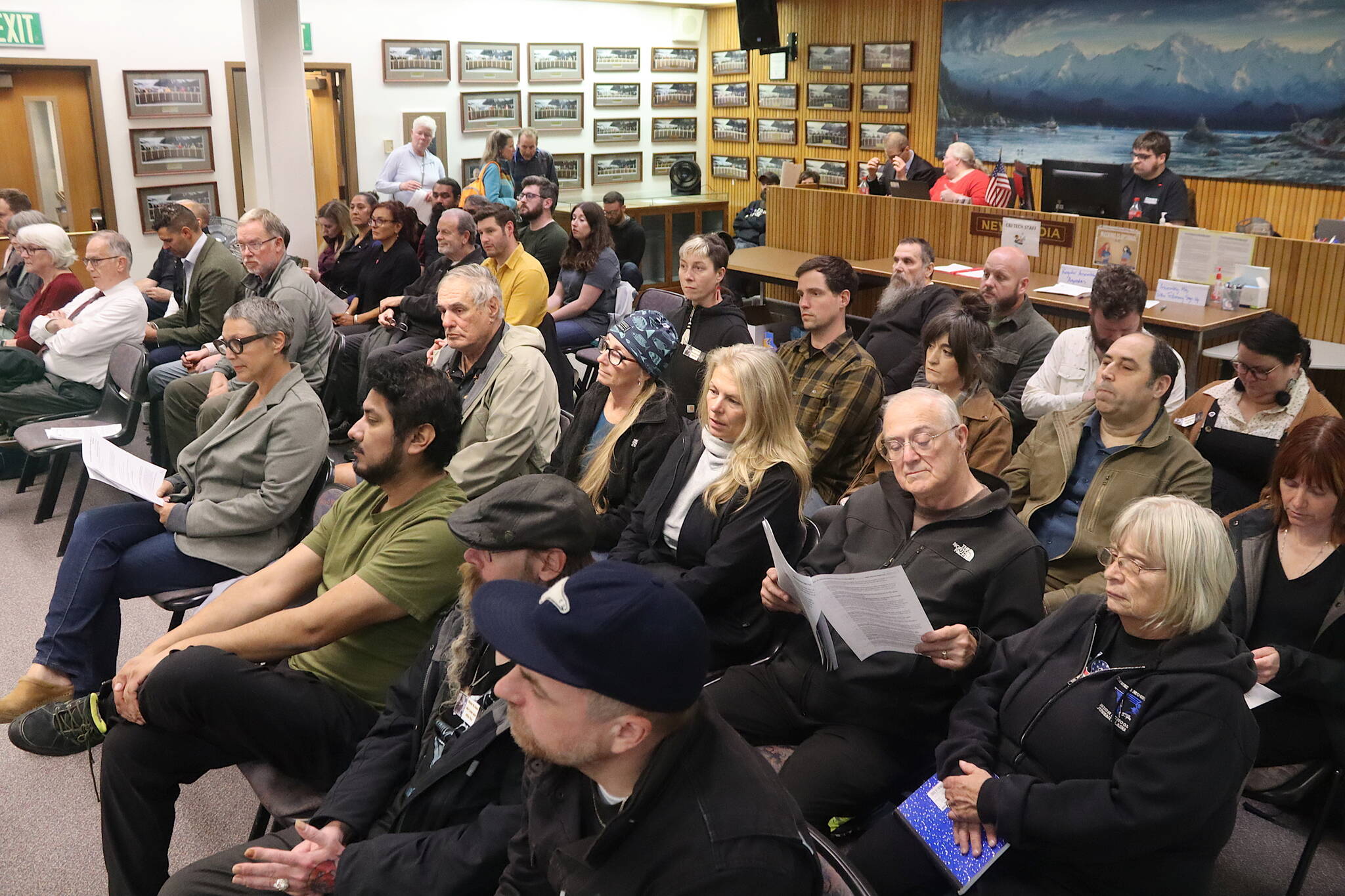Anger about the shooting death of Steven Kissack during a confrontation with police — and Juneau’s handling of people experiencing homelessness — dominated the public comment period of a Juneau Assembly meeting on Monday night, exactly two weeks after the shooting occurred a few blocks from City Hall.
Opinions expressed by about 10 people varied about whether the police’s actions were proper during the incident, since Kissack was wielding a knife and was shot as he ran in the general direction of an officer at the scene. But Bonilyn Parker, a North Douglas resident reading a letter to the Assembly she circulated after the shooting which she said was signed by 16 businesses and 308 community members, declared “Juneau must not be a place where this kind of thing happens.”
“As a result of this tragedy members of our downtown community and visitors to our community are experiencing anger, fear and a loss of trust,” she read. “We must work to restore that trust, and make Juneau a place where people can live safely and without fear. Moving forward requires clear communication, honest self-reflection and transparency from the CBJ and JPD on this issue as they work to rebuild our community trust.”
Kissack, who lived primarily on the streets of downtown Juneau for years with his dog Juno, was known to many people living and working downtown, and his death prompted memorials on the street where he was shot and public protests. According to a statement by Juneau Police Chief Derek Bos, the confrontation occurred when Kissack became combative when approached by an officer about a reported assault the previous day in which Kissack was the suspect.
The shooting involving four Juneau Police Department officers and one with the Alaska Wildlife Troopers is being investigated by the state Office of Special Prosecutions.
The outcome of the shooting is unfortunate, but local police generally have been effective during the encounters with people living on the streets, said Curt Burns, a downtown Juneau resident testifying during Monday’s meeting.
“I’ve worked downtown, I’ve lived downtown and I’ve witnessed situations being de-escalated in a more efficient and calming manner,” he said. “And this was an isolated incident at 1:30 in the afternoon with tourists around that I don’t believe is a pattern of behavior and how this community wants to move forward…We are going to get through this together and nobody’s to blame. It’s an unfortunate incident and we’ll get through this.”
Kissack’s death had some residents expressing conflicting thoughts about what they said was a difficult situation for everyone involved. Marco Hernandez, an employee at a business on Front Street within feet of where the shooting occurred, said controversial police shootings are frequent in Arizona, where he most recently lived until May, while in Juneau “everyone’s trying their best, but I believe that we can do better.”
“I don’t blame anybody, I understand what had to happen, but that man was running for his life and I need you all to understand that what I saw was not OK,” he said.
A call for policy changes was made by Phil Moser, who said he wants a “community action council with full transparency, with subpoena powers (and) with immunity from retaliation in charge of overlooking the police.” He also said he’d like to see some police funds redirected toward mental health crisis officials to deal with incidents such as the confrontation with Kissack.
Deputy City Manager Robert Barr, in response to a request by Mayor Beth Weldon to provide an overview of services available to people experiencing mental and other difficulties, noted there are multiple programs operated by the city, nonprofit and other entities that can be found at the website juneaumentalhealth.org.
Homelessness and disruptive behavior by some people living on the streets has been a prominent issue for the Assembly and other city leaders in recent months. The Assembly this spring approved a “dispersed camping” policy since a city-approved campsite last year experienced a sharp rise in illegal activity compared to previous years.
However, social agencies providing services to disadvantaged people are now reporting threats from some unhoused people. City officials are now looking at stricter enforcement measures following a recent U.S. Supreme Court ruling that allows bans on sleeping outdoors in public places.
• Contact Mark Sabbatini at mark.sabbatini@juneauempire.com or (907) 957-2306.

